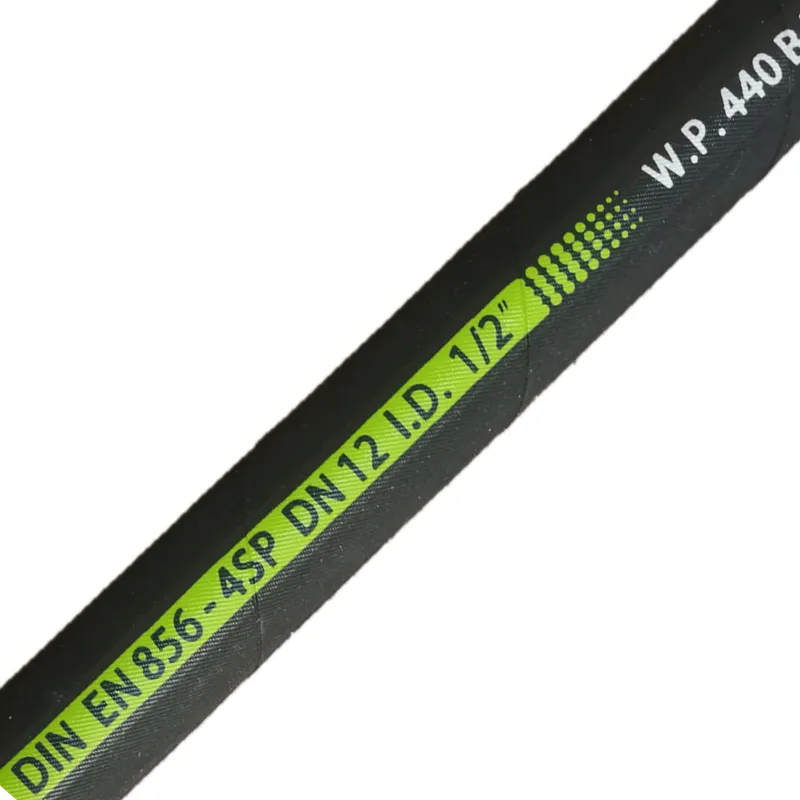Nov . 21, 2024 18:19 Back to list
ce certification flexible metal hose company
CE Certification in the Flexible Metal Hose Industry
In today's globalized market, product certification plays a crucial role in ensuring safety, reliability, and adherence to international standards. One of the prominent certifications that significantly impacts the manufacturing and marketing of industrial products in Europe is the CE certification. This article delves into the importance of CE certification for flexible metal hose companies, the certification process, and its implications on product quality and marketability.
Understanding Flexible Metal Hoses
Flexible metal hoses are essential components in various industrial applications, including chemical processing, oil and gas, aerospace, and food and beverage industries. These hoses are designed to handle fluid and gas transfer while maintaining flexibility and resistance to extreme temperatures, pressure, and corrosive agents. Their unique construction often includes stainless steel or other alloys, providing durability and reliability.
Given the critical roles these hoses play, manufacturers must prioritize safety and compliance with international regulations. This is where CE certification comes into play.
The Importance of CE Certification
CE marking indicates that a product complies with the essential health and safety requirements stipulated by European Union (EU) directives. For manufacturers of flexible metal hoses, achieving CE certification signals to clients and stakeholders that their products meet rigorous standards. This certification not only enhances product credibility but also opens doors to new markets, particularly in the EU.
1. Market Access CE marking is mandatory for numerous products sold within the European Economic Area (EEA). Without this certification, flexible metal hoses cannot be legally sold in these markets. Therefore, obtaining CE certification is a gateway for companies aiming to expand their market reach.
2. Quality Assurance The process of obtaining CE certification requires rigorous testing and quality control. It prompts manufacturers to adopt best practices in production, leading to better quality products and fewer defects. This not only benefits the manufacturer but also enhances customer satisfaction and safety.
3. Regulatory Compliance The flexible metal hose industry must adhere to various EU regulations regarding environmental impact, safety, and health standards. CE certification ensures compliance with these regulations, reducing the risk of legal issues and potential penalties.
The CE Certification Process
ce certification flexible metal hose company

The path to CE certification involves several key steps
1. Determine Applicable Directives Manufacturers must identify which EU directives apply to their products. For flexible metal hoses, relevant directives may include those addressing pressure equipment, low voltage equipment, and the general safety of products.
2. Conduct Risk Assessment A thorough risk assessment is conducted to identify potential hazards associated with the product's use. This step is critical in ensuring that all safety aspects are considered.
3. Testing and Inspection The product must undergo various tests to evaluate its compliance with EU standards. This may involve pressure tests, temperature resistance tests, and assessing the material’s corrosion resistance.
4. Technical Documentation Manufacturers must compile comprehensive technical documentation, which includes design specifications, test results, and compliance declarations. This documentation serves as proof of conformity and must be maintained for inspection if required.
5. Declaration of Conformity Once all testing and documentation requirements are fulfilled, the manufacturer issues a Declaration of Conformity. This document states that the product meets all applicable EU standards, allowing them to affix the CE mark.
6. Continuous Compliance Achieving CE certification is not a one-time event. Manufacturers must engage in continuous monitoring of their production processes to maintain compliance with regulatory changes and emerging standards.
Conclusion
CE certification is of paramount importance for flexible metal hose manufacturers seeking to compete in the global marketplace, particularly within the European Union. It not only facilitates market access but also fortifies product quality and safety. In an era where consumers and industries alike demand transparency and reliability, adhering to CE marking requirements represents a commitment to excellence in product development.
As industries evolve and the demand for high-quality flexible metal hoses continues to grow, manufacturers equipped with CE certification will undoubtedly find themselves better positioned to succeed in a competitive landscape. Embracing these standards is not merely a regulatory obligation but a strategic advantage that can foster innovation, enhance brand reputation, and ensure long-term sustainability.
-
Best Four Steel Wire Spiral Hose Hydraulic R12 – Durable High-Pressure Hose Manufacturer
NewsJul.08,2025
-
High-Quality 1/4 Hydraulic Hose – Soft, Flexible & Durable Rubber Hoses for Industrial Use
NewsJul.08,2025
-
1 1 2 Inch Hydraulic Flexible Hose - Durable, Reliable, High-Pressure Solutions
NewsJul.07,2025
-
High-Quality 1 2 Rubber Hose - Durable, Flexible Hydraulic Solutions
NewsJul.07,2025
-
Discover SAE Hydraulic Hose Types - High Quality & Durable Hoses from Leading Factory Supplier
NewsJul.06,2025
-
High Pressure Wire Hydraulic Rubber Hose Supplier Durable & Reliable 1SN Hose Solutions
NewsJul.06,2025
